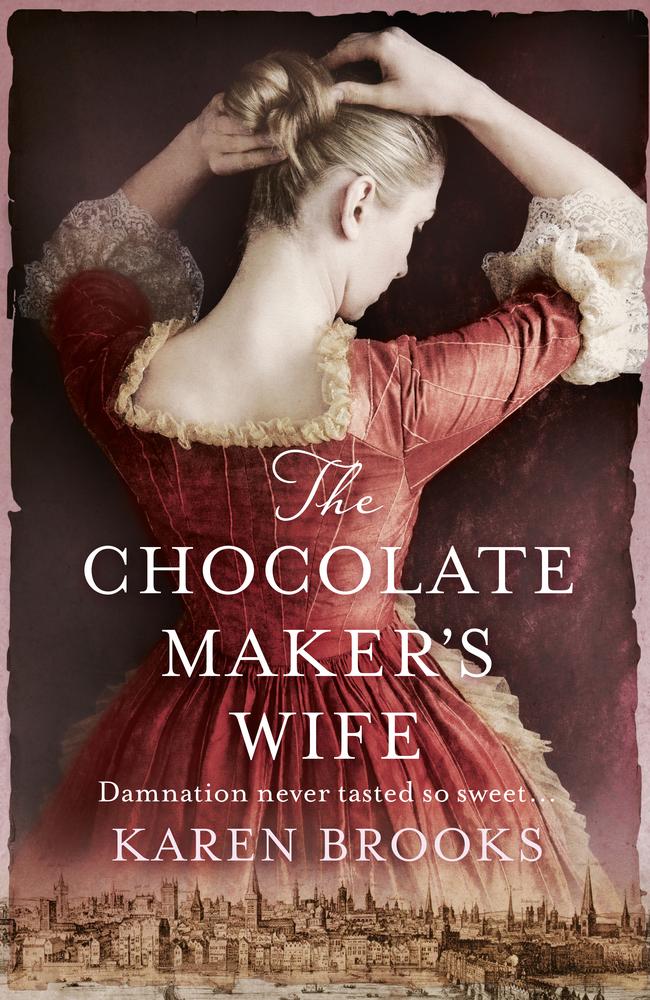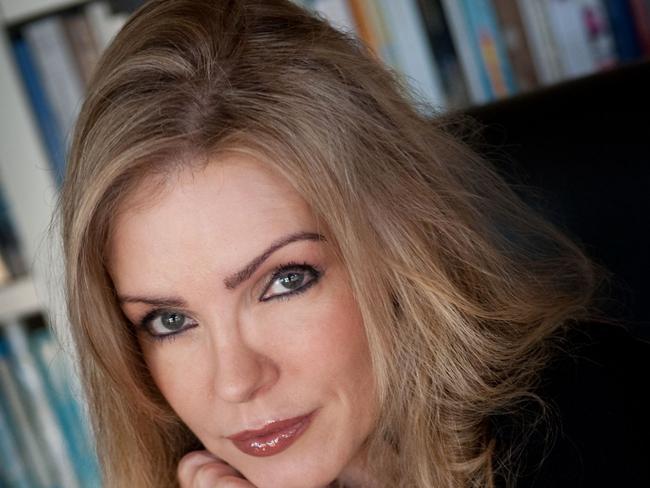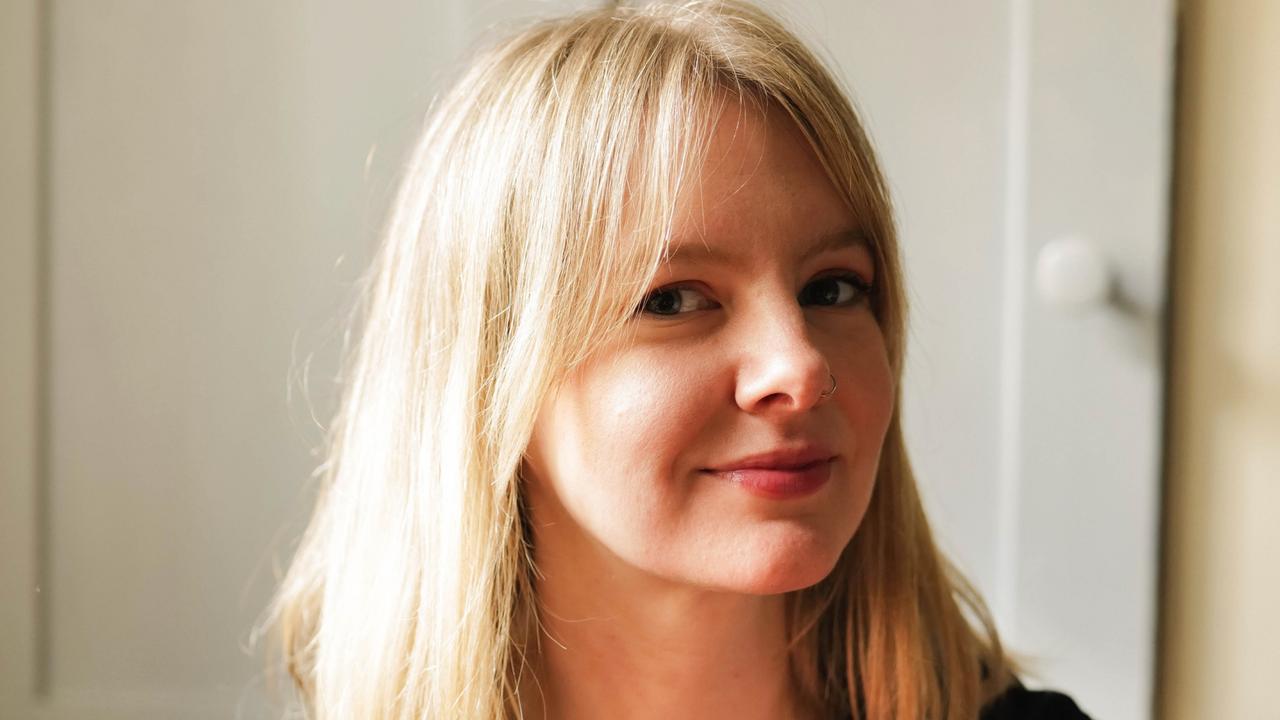The Chocolate Maker’s Wife: Author Karen Brooks discusses new book
When author and News Corp columnist Karen Brooks wanted to highlight the contribution of women a certain part of history, she found an ideal vehicle … chocolate.
So much of our history is not only recorded by men, but features them almost exclusively. This is especially true when it comes to trade.
Women have always been integral to business and commerce, yet we know so little about the roles they played in various industries, whether candle-making, brewing, baking, wool production etc. They provided ideas, support, labour and, in times of war and sickness, stability. Yet their contribution isn’t really known or valued.
I made it my literary mission to address this through HERstory — the writing of (extra) ordinary women back into history.
There are so many marvellous women to draw on when exploring the notion of HERstory, especially fictional ones. Characters like Elizabeth Bennet in Pride and Prejudice, Anna Karenina, Penelope and Circe in The Odyssey, and Lady Macbeth.
Likewise contemporary writers also inspire me with the eras they evoke and the heroines they create — Geraldine Brooks (no relation, sadly), C.J. Sansom, Ken Follett, Margaret Atwood, Hannah Kent, Kate Forsyth and others. But it’s the largely unsung real-life heroines that I find particularly inspirational and draw on for my novels. My latest work, The Chocolate Maker’s Wife, is no exception.

Set in 1660s Restoration London, a period renowned for improvements to women’s social position, flourishing of the arts and sciences, the birth of journalism, as well as war, plague and the Great Fire, it was a tremendous backdrop for any writer and, frankly, irresistible. Female figures from the period, such as the eccentric chocolatier Grace Tosier, the playwright and spy Aphra Behn, the brilliant philosopher and poet Margaret Cavendish, the Duchess of Newcastle-on-Tyne, and the king’s mistress, canny and witty Nell Gywn who rose from orange seller to actress to wielding influence and gaining the adoration of the masses, became the inspiration for my fictive women — especially my chocolate maker, Rosamund Tomkins.
Chocolate, as a drink, was just being introduced into England, coinciding with the return of the exiled King Charles II and the beginning of his rather decadent reign. Chocolate, along with coffee, which was starting to become very popular, was considered a sober alternative to beer and ale. Like coffee, it facilitated conversation, gossip, and a sense of community.
Consequently, a few chocolate houses began to appear.
Chocolate also had the reputation of being an aphrodisiac and was regarded suspiciously as part of a foreign plot to undermine British sensibilities and faith — in God, family and King — so it carried connotations of danger too.
The idea of putting a woman in charge of a venue that not only sold such a naughty drink (it was known as ‘sin in a bowl’), but invited men to enter the chocolate house and conduct business, discuss news and politics, exchange ideas, and plot was not only alluring but made historic sense.
Rosamund, my heroine, is strong, clever and kind, with great business acumen and able to hold her own in a man’s world. Using her skills, she manages to set up and run a successful business, earn the trust of her clients and workers and their respect too.

But Rosamund is not the only resilient woman in the book. Bianca, an African-Italian slave, is someone who manages to both survive and thrive despite the limitations set upon her and the terrible bigotry she experiences. She has a core of steel and a huge heart.
Other women also populate the book — those who make dreadful choices and suffer for it and cause others to as well. These women, while cast in a less favourable light, also exude strengths.
Depicting women working alongside men, supporting, undermining, guiding and loving or loathing them, we get not only a better understanding of bygone eras and the people who lived through them, but ourselves.
That’s why her story is so important. HERstory is history — made richer, more balanced and real — even when it’s a work of fiction, like The Chocolate Maker’s Wife.
The Chocolate Maker’s Wife by Karen Brooks, published by HQ Fiction, is out now where all good books are sold.
FROM 1660s England to Australia in the 1990s … the Sunday Book Club’s Book of the Month for April is Felicity McLean’s The Van Apfel Girls Are Gone.
Readers get it for a 30 per cent discount, by going to Booktopia and using the code BCBT19.
Remember to come and discuss your fave reads at the Sunday Book Club group on Facebook.


